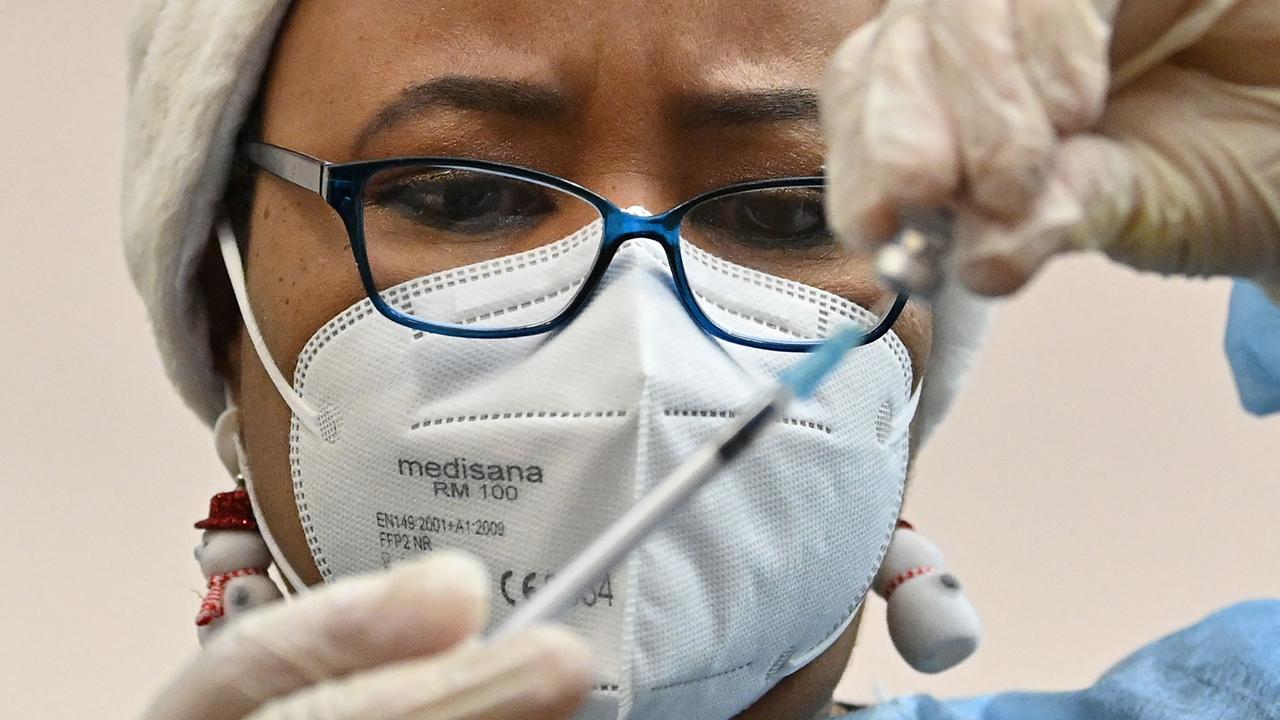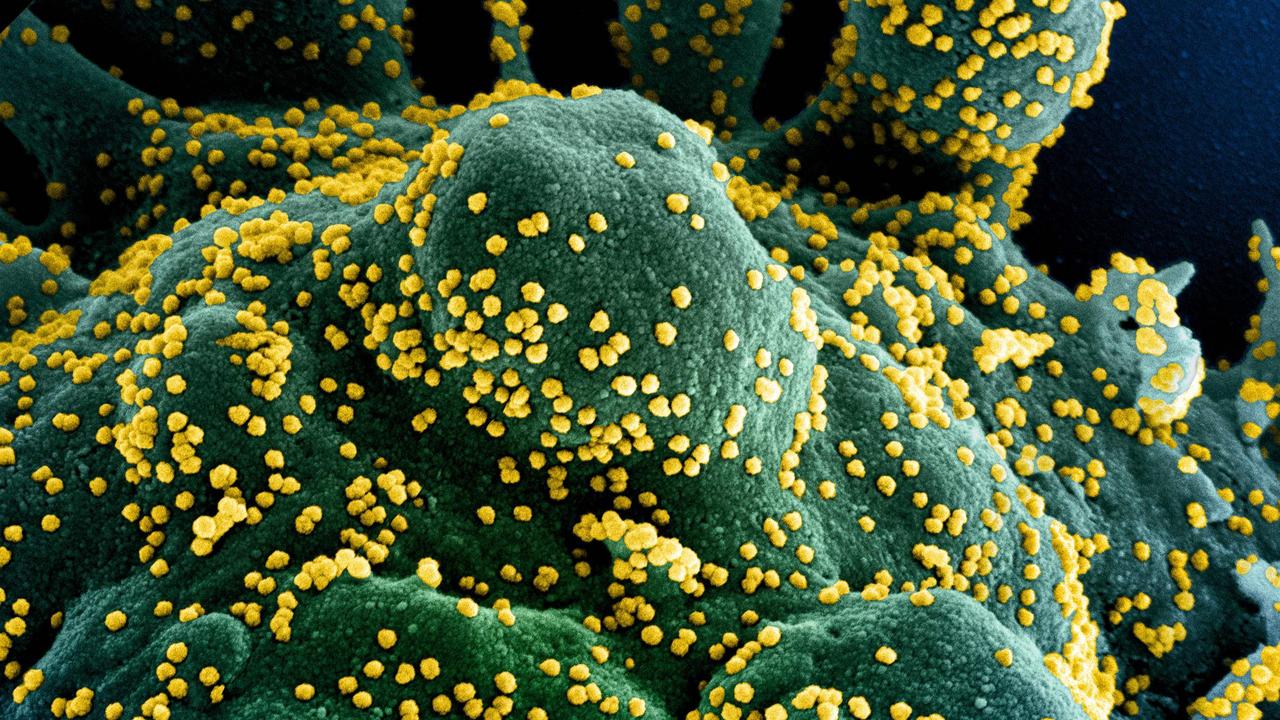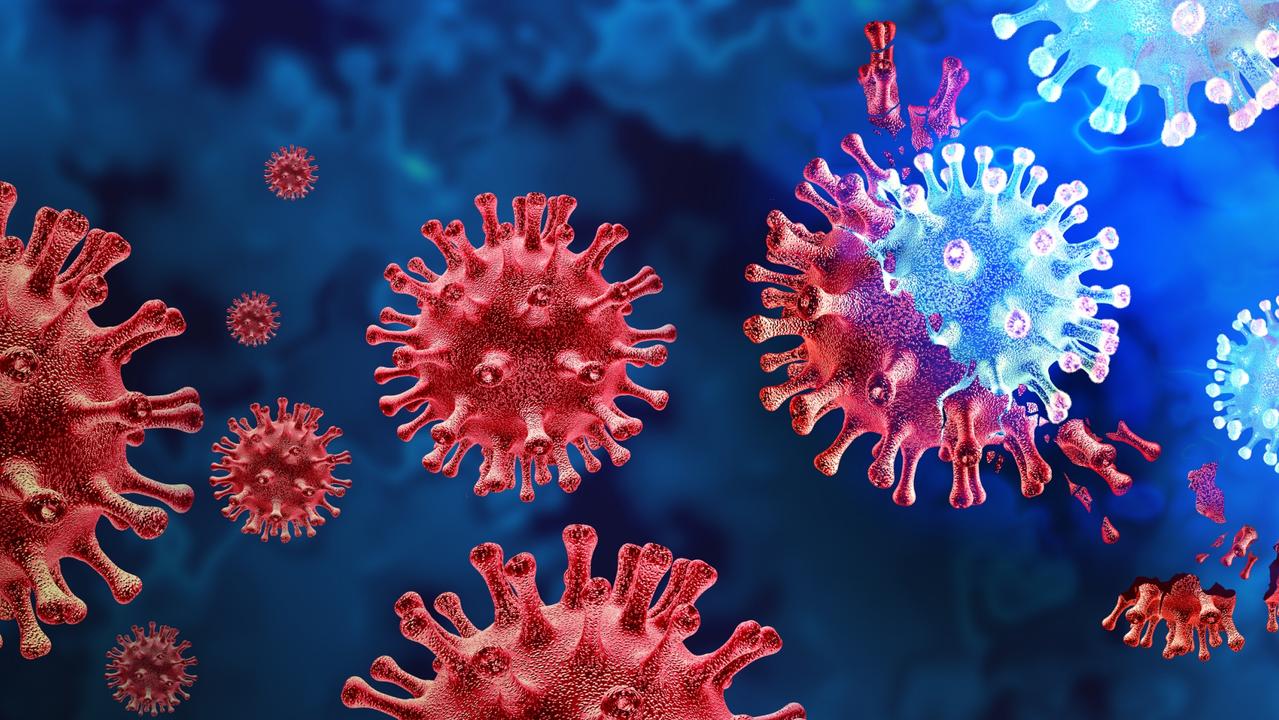Omicron ‘five times less severe’ than Delta
Dominic Perrottet says early signs indicate Omicron is “five times less severe” than Delta, with most cases among young people.

NSW Premier Dominic Perrottet says early signs indicate Omicron is “five times less severe” than Delta.
Mr Perrottet made the statement after the state recorded a record 5715 new Covid-19 cases.
“The early signs are very pleasing and the advice we received from the chief health officer this morning, Dr Kerry Chant, it looks like the Omicron will be five times less severe than Delta,” he said.
“So those early signs are very pleasing. But obviously we need a bit more data and a bit more time as we move through.
“We do note here in our state, the majority of people who are contracting the virus at the moment are generally younger people.
“So we’ll keep monitoring that sit as we move through this phase.”
But I want to particularly note that the early signs here, the early signs are encouraging and I note the Queensland health chief officer’s comments this morning in relation to Omicron.”
Earlier today, chief health officer Dr John Gerrard says the spread is “essential” and “necessary” in order for the pandemic to evolve into an endemic phase.
“We all have to have immunity, you will all have to develop immunity and there’s two ways you can do that: by being vaccinated or getting infected,” Dr Gerrard said.
“But the early information we‘re getting is it seems to be a little milder and certainly the vaccine is protective.
“We’re not going to stop it. We’re going to just try and slow it down a little bit to enable people to get those third doses.”
NSW chief medical officer Kerry Chant said that about 80 per cent of cases in NSW are now Omicron.
“Pulling together multiple pieces of evidence from overseas countries such as South Africa and the UK, and using some of our own emerging data, it indicates that infection with Omicron is likely to be milder than infection with Delta, with the risk of hospitalisation being around 60 per cent to 80 per cent less than for Delta,” she said.
“But the issue is the increased transmissibility, leading to high case numbers. And the impact this is having on vulnerable settings, vulnerable people and critical workforces. Such as our health and aged care workforce.
“And the good news is that booster doses will increase your protection. And probably will have an impact on transmission.”
Studies show Omicron less severe
Two studies from Britain published Wednesday showed Covid infections with Omicron are less likely to result in hospitalisation compared to the Delta variant, the latest research confirming a trend first identified in South Africa.
The preliminary studies — one paper from Scotland and the other from England — were cautiously welcomed by experts, who nonetheless stressed that any advantage in milder outcomes could still be negated by the new strain’s heightened infectiousness, which may still lead to more overall severe cases.
“We’re saying that this is qualified good news — qualified because these are early observations, they are statistically significant, and we are showing a reduced risk of hospitalisation,” Jim McMenamin, a co-author of the Scottish research, told reporters on a call.
The Scottish paper examined Covid cases recorded in November and December, and grouped them by cases caused by Delta against those caused by Omicron.

It found that “Omicron is associated with a two-thirds reduction in the risk of Covid-19 hospitalisation when compared to Delta,” while also showing that a booster vaccine offered substantial additional protection against symptomatic infection.
The study was small and there were no people under 60 hospitalised at the time, but the authors said they had adjusted for these limitations using statistical methods.
The second paper, from England, found there was a 20-25 per cent reduction in any attendance at hospital for Omicron compared to Delta, and a 40-45 per cent reduction in hospitalisation lasting one night or longer, in other words “admissions.” The Scottish study only looked at admissions so this may account for part of the difference seen.
Azra Ghani of the Imperial College London, who co-authored the England study, said in a statement: “Whilst the reduced risk of hospitalisation with the Omicron variant is reassuring, the risk of infection remains extremely high.
“With the addition of the booster dose, vaccines continue to offer the best protection against infection and hospitalisation.” Neither of the studies has been peer reviewed, but they add to growing evidence about disease outcomes with Omicron.

It remains unclear whether the decreased rate of severe cases seen with Omicron is because of characteristics of the variant, or whether it appears milder because it is coming up against populations with greater immunity from prior infection and from vaccination.
Penny Ward, a professor of pharmaceutical medicine at King’s College London, who was not involved in the research, said: “This news does not detract from the extraordinary spread of this variant across the population, and the fact that even a small proportion of people needing hospital care for COVID may become a very large number indeed if the community attack rate continues to escalate.”
With AFP



